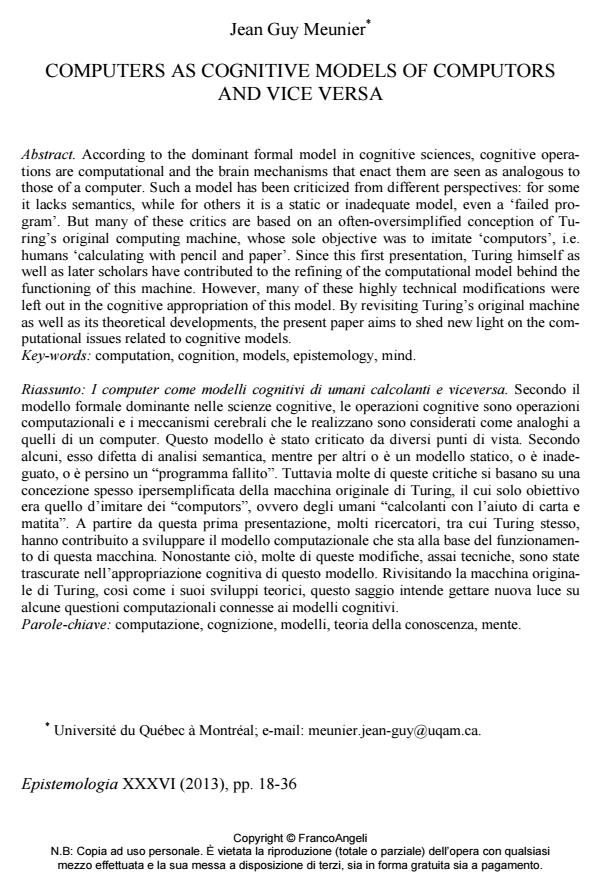Computers as cognitive models of computors and vice versa
Journal title EPISTEMOLOGIA
Author/s Jean Guy Meunier
Publishing Year 2013 Issue 2013/1
Language English Pages 19 P. 18-36 File size 273 KB
DOI 10.3280/EPIS2013-001002
DOI is like a bar code for intellectual property: to have more infomation
click here
Below, you can see the article first page
If you want to buy this article in PDF format, you can do it, following the instructions to buy download credits

FrancoAngeli is member of Publishers International Linking Association, Inc (PILA), a not-for-profit association which run the CrossRef service enabling links to and from online scholarly content.
According to the dominant formal model in cognitive sciences, cognitive operations are computational and the brain mechanisms that enact them are seen as analogous to those of a computer. Such a model has been criticized from different perspectives: for some it lacks semantics, while for others it is a static or inadequate model, even a ‘failed program’. But many of these critics are based on an often-oversimplified conception of Turing’s original computing machine, whose sole objective was to imitate ‘computors’, i.e. humans ‘calculating with pencil and paper’. Since this first presentation, Turing himself as well as later scholars have contributed to the refining of the computational model behind the functioning of this machine. However, many of these highly technical modifications were left out in the cognitive appropriation of this model. By revisiting Turing’s original machine as well as its theoretical developments, the present paper aims to shed new light on the computational issues related to cognitive models.
Keywords: Computation, cognition, models, epistemology, mind.
- Varieties of Scientific Realism Jean-Guy Meunier, pp.331 (ISBN:978-3-319-51607-3)
- Le traitement du potentiel argumentatif des mots en analyse du discours Olga GALATANU, in Interfaces numériques /2022
DOI: 10.25965/interfaces-numeriques.4700
Jean Guy Meunier, Computers as cognitive models of computors and vice versa in "EPISTEMOLOGIA" 1/2013, pp 18-36, DOI: 10.3280/EPIS2013-001002